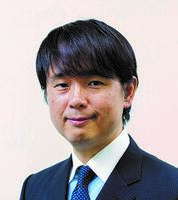Research Experience
-
2018.06-Now
Asia Students Cultural Association Director
-
2009.12-Now
Asian Cultural Centre for UNESCO Councilor
-
2009.02-Now
Japan International Cooperation Agency JICA Ogata Sadako Research Institute for Peace and Development Visiting Research Fellow
-
2006.04-Now
Waseda University Graduate School of Asia Pacific Studies Professor
-
2022.07-2025.05
Waseda University Trustee
-
2020.09-2022.09
Waseda University Institute of Asia-Pacific Studies Director
-
2020.09-2022.09
Waseda University Graduate School of Asia Pacific Studies Dean
-
2018.12-2020.09
Waseda University Center for Higher Education Studies (CHES) Deputy Director
-
2018.11-2020.09
Waseda University Institute of Asia-Pacific Studies Deputy Director
-
2014.11-2018.11
Waseda University International Affairs Division Dean
-
2003-2018
Japan External Trade Organization, Institute of Developing Economies Advanced School Visiting Professor
-
2010.12-2016.11
Japanese National Commission for UNESCO Member
-
2011.04-2013.03
The University of Tokyo Graduate School of Education Visiting Professor
-
2010.09-2012.09
Waseda University Center for International Education Dean
-
2009.04-2010.09
Waseda University International Affairs Division Advisor
-
2007.04-
Waseda University Graduate School of Asia Pacific Studies Program Director
-
2005.01-2006.09
Waseda University Center for International Education Associate Dean
-
2003.04-2006.03
Waseda University Graduate School of Asia Pacific Studies Associate Professor
-
2000.10-2003.03
Hiroshima University Center for the Study of International Cooperation in Education Associate Professor
-
1997.05-2000.09
Hiroshima University Center for the Study of International Cooperation in Education Assistant Professor
-
1996.11-1997.04
World Bank Consultant
-
1996.08-1997.04
Overseas Development Council Researcher in Residence


Click to view the Scopus page. The data was downloaded from Scopus API in February 26, 2026, via http://api.elsevier.com and http://www.scopus.com .